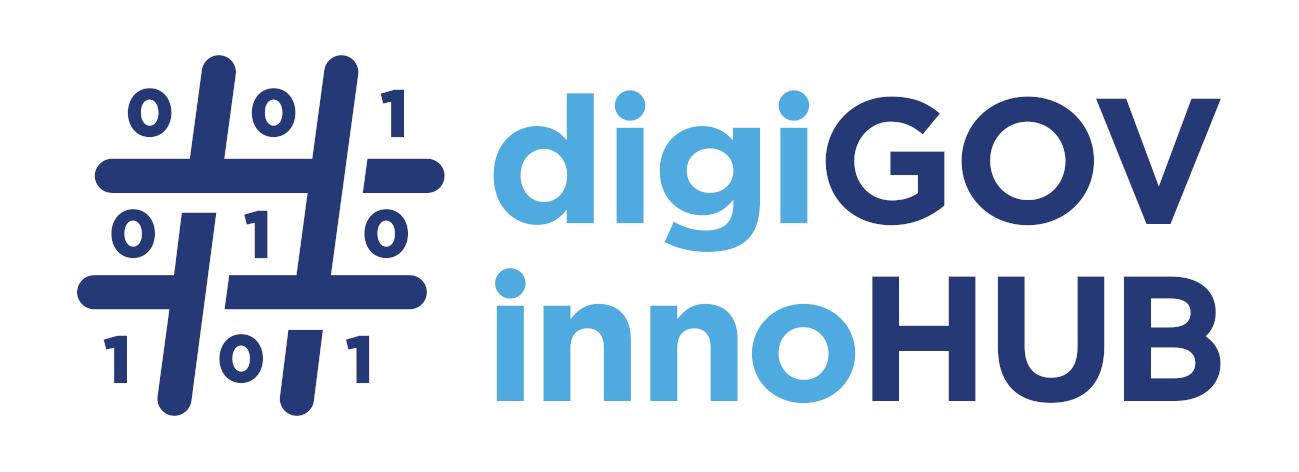From workshops to panel discussions: building momentum for the next gathering
The TechFuse conference returned for its second edition, transforming Ioannina into a vibrant laboratory of ideas for several days. Against the backdrop of Lake Pamvotida, the conference brought to the forefront a multidimensional discussion about the future of technology and its impact on society.
Public institutions, civil society organizations, and business sector representatives supported a three-day marathon with a common goal: to highlight discussions about technology, culture, and innovation in a regional city. More than 1,500 attendees watched 75 speakers contribute their unique perspectives to the mosaic built during these days in Ioannina.
Those who visited the “Dimitris Hatzis” cultural center in Ioannina during these two days had the opportunity to attend discussions—both inside and outside the amphitheater—ranging from the future of journalism and green cities to cybersecurity and the use of artificial intelligence in cancer treatment.
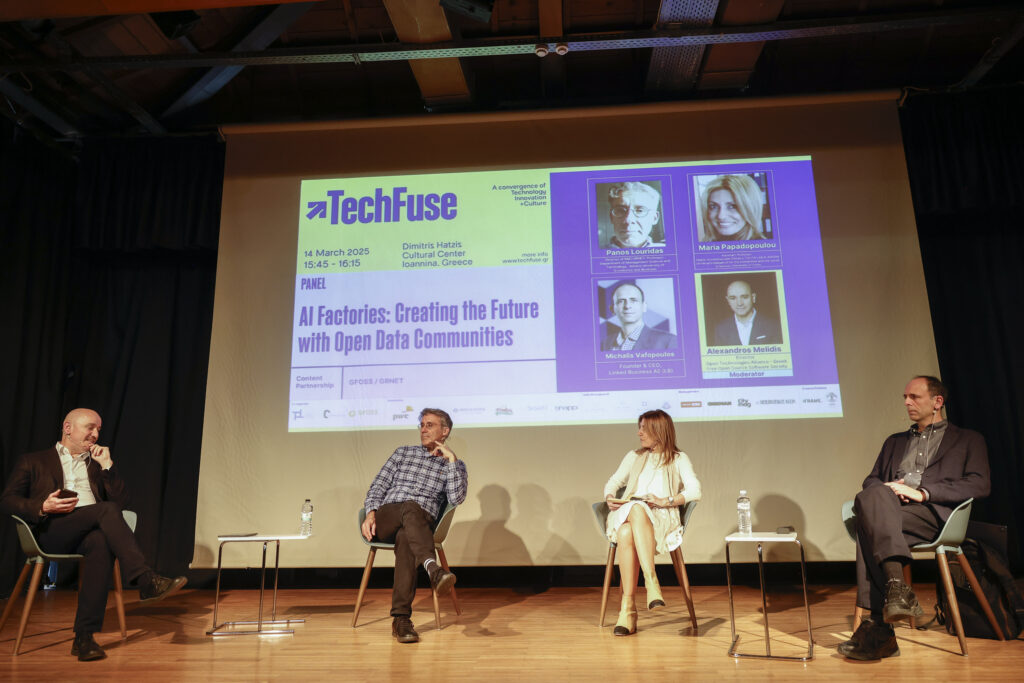
GFOSS panel at Techfuse tittled: ”AI Factories: Creating the Future with Open Data Communities”
The Foresight Workshop
One of the most interesting elements of the conference was the Strategic Foresight Workshop held on Thursday, March 13th at the venue housing the c-Ioannina team.
In the organizers’ welcoming space, journalists, technology and cultural workers, entrepreneurs, and local government representatives discussed the city’s problems and created future scenarios for their city.
The workshop succeeded in introducing the foresight method to most participants who were previously unfamiliar with it. Additionally, it created a discussion space among local stakeholders. This highlighted something many Athenians would envy: the privilege Ioannina residents have of living together, sharing collective problems with such clarity, and feeling that solutions—or at least the people who can solve them—aren’t so far away. It would be difficult to find a conversation group that didn’t mention the smog or the city’s airport issues.
Or to speak more formally—although I’m not sure if this was exactly the spirit of TechFuse—relationships with local authorities are more direct and local problems are known to everyone, thus allowing for more meaningful interventions and solutions. But let’s return to the foresight method. What is it and what are its benefits?
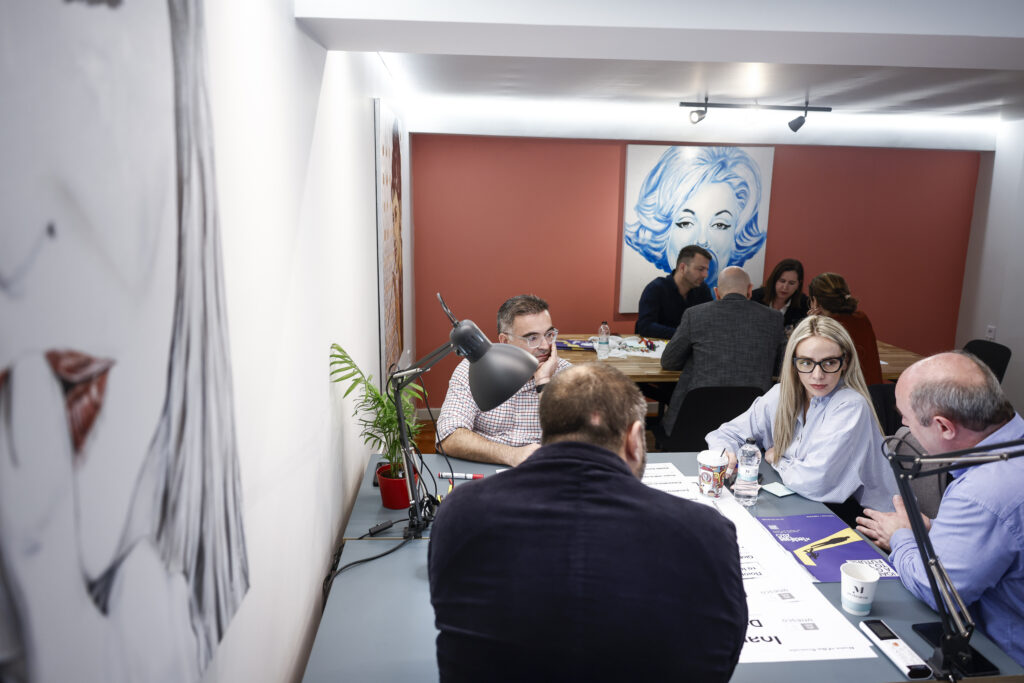
“Foresight is a bouquet of methodologies and tools that can be used in different ways depending on the needs each time. It can be used as a tool to help someone establish a strategy, it can help you tremendously in opening a dialogue within a company. The issue is how to change people’s mindset,” Epaminondas Christofilopoulos, who conducted the strategic foresight workshop at TechFuse 2025, explained to the Innovation Hub for Digital Governance.
Mr. Christofilopoulos, who leads the UNESCO Chair for Future Research at FORTH and chairs MOMus, added: “Foresight is inherently a very democratic approach. One of its basic principles is that in order to explore the future, we need to engage in a collective process. Therefore, proper foresight must establish an appropriate process that democratically allows everyone to express themselves, so we can all explore the future together, gather ideas, feedback. The better you build this, the better the result will be.” But the issue, as he says, is not just the outcome of the workshop but the process as a whole.
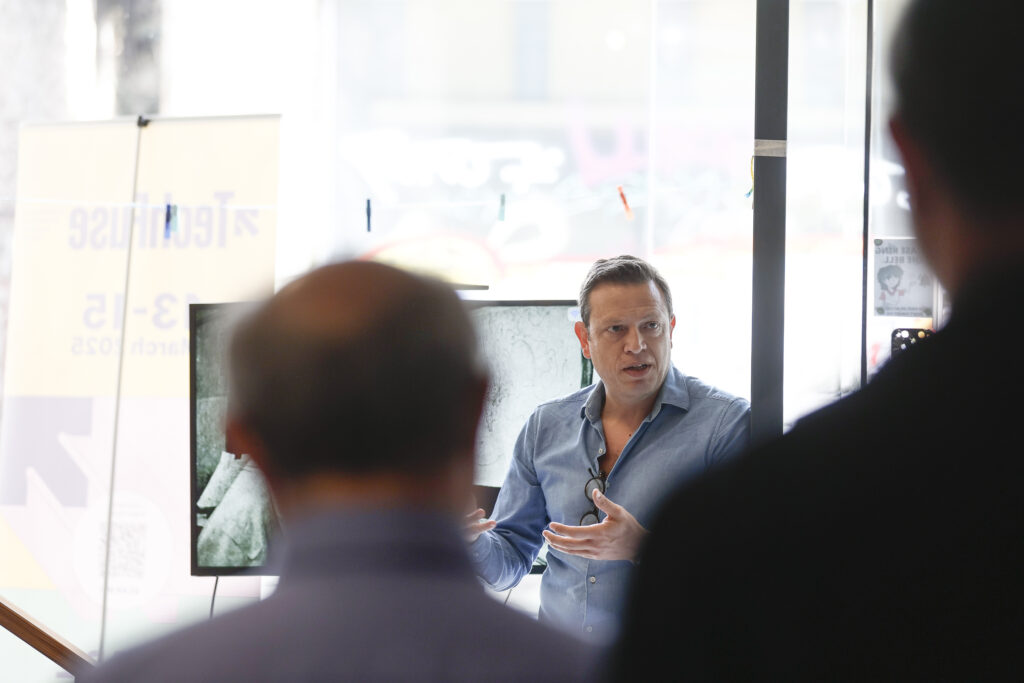
“Initially we started calling it a side effect of foresight. The people who participated developed a very important mindset. They understood the world differently, perceived things they were watching happen, how these would affect the world in the future, etc. Over time, we realized in the last ten years that the most important contribution this offers isn’t actually the study but precisely the process.”
Hackathon/Ideathon
A dynamic hackathon-ideathon, co-organized by the European Innovation Hub DigiGov, concluded the technology and innovation conference. Participants, primarily students from the University of Ioannina, enthusiastically took part, utilizing findings from the preceding foresight workshop to develop solutions for real issues facing the region.
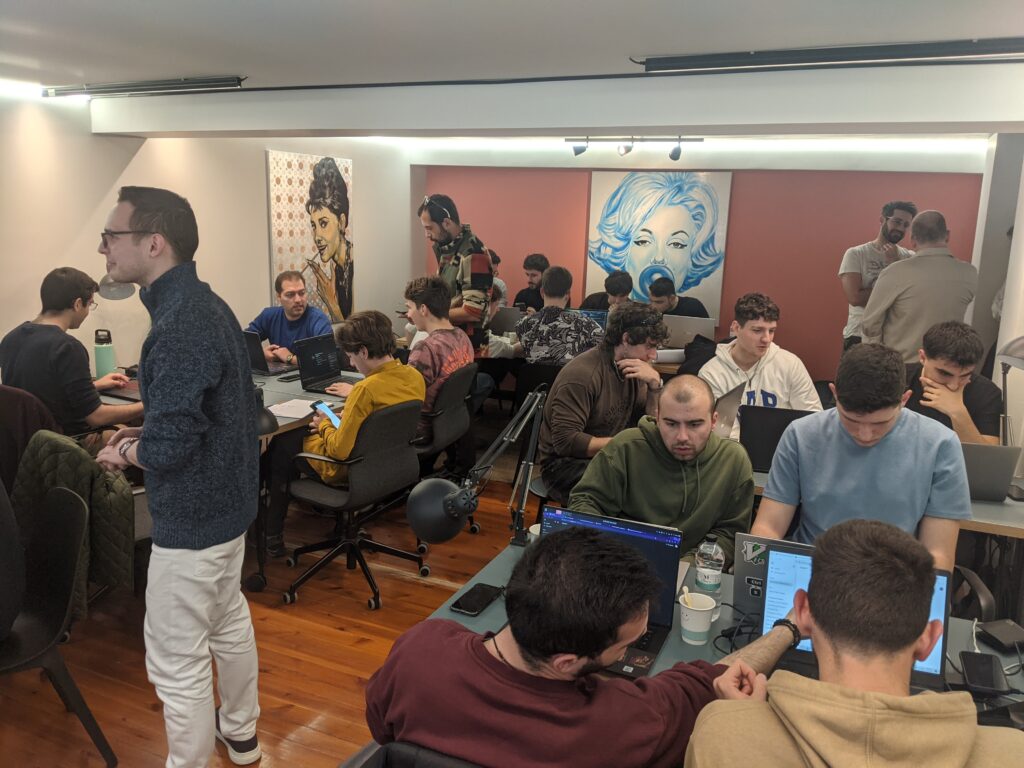
Participants worked intensively, translating problems into business plans and prototype applications. In approximately four hours, one team created an application for finding roommates based on compatibility of habits and preferences, addressing the housing issue in tourist-heavy Ioannina. Another team created a parking reservation system for the lake area, while the only team—unfortunately—with a strong female presence developed a business plan to address the city’s airport problem.
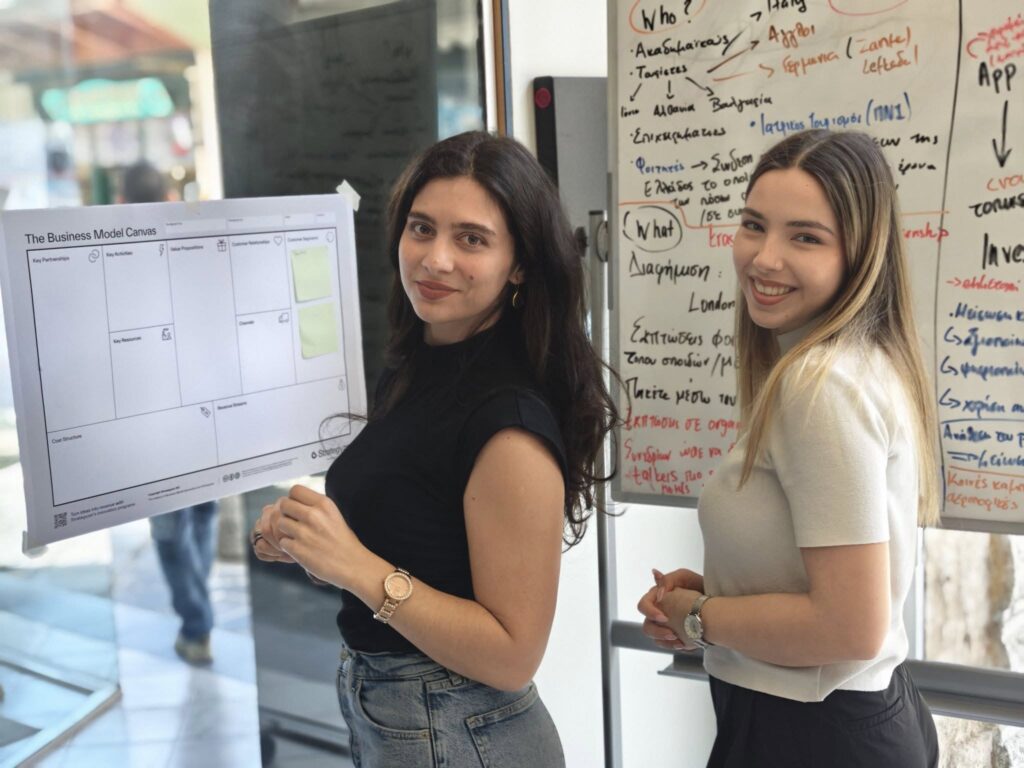
As the second edition concluded, the promise for next year leaves anticipation. Ioannina appears to have the potential to transform into a modern crossroads of ideas and innovation, a trend worth watching in the future.
